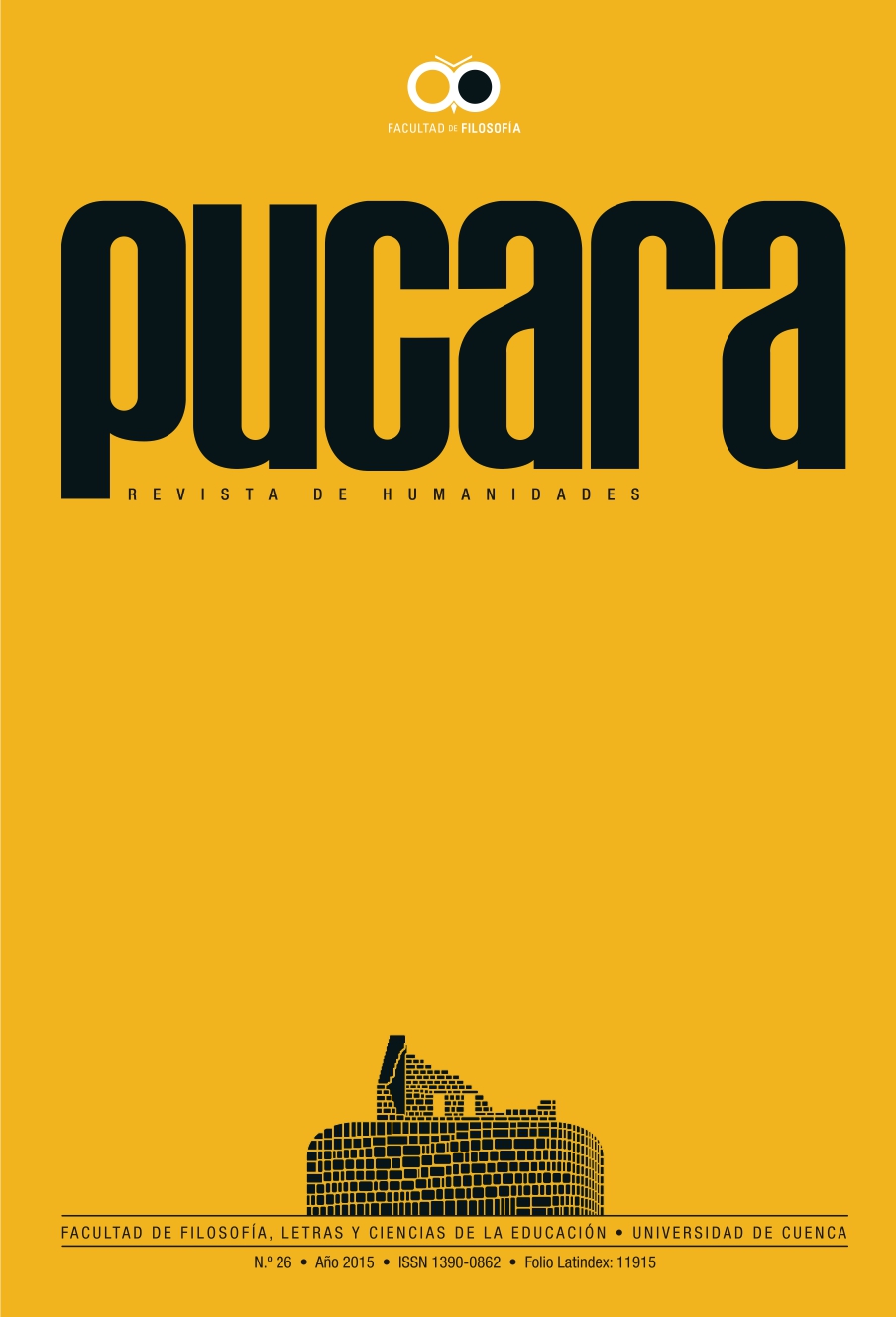History, politics and fiction: some examples from the contemporary Latin American literature
DOI:
https://doi.org/10.18537/puc.26.10Keywords:
Reading and writing. Fiction texts. Dictatorships. Discourses of a Period.Abstract
In front of Rosalba Campra’s assertion saying that the readings are as epochal as writing, where every historical circumstance makes certain texts, contemporary or not, to be read as illuminating the moment in which they are read, we present this work from a central question: what are the relationships between history, politics and fiction that are bundled in the texts? Today we know that, beyond all illusion or critic automatism rightly referred by Campra, there is a textuality or some corpora that speaks to us with great insistence about events linked to the dictatorships that ravaged until the last decades of the twentieth century in the Southern Cone of Latin America. That productions have not only been materialized in novels and stories, but also in poetry, cinema, painting, theater, etc. In this sense, the relationship between the creators of fictions and their times founds an empirical justification that, in different cases, allows us to glimpse an interpretation of these discourses that circulates in a time and in a certain place. The article discusses the value of the category “historical novel” and takes up the proposal by Linda Hutcheon, “historiographic metafiction”, which allows to realize the interdiscursive relationship between history/fiction. Three Chilean novels (Lemebel, Bolaño and Tatiana Lobo Wiehoff) are presented to re-visit the events of the last Chilean dictatorship.
Downloads
References
Avelar, Idelber. Alegorías de la derrota: La ficción posdictatorial y el trabajo del duelo. Santiago de Chile: Cuarto Propio, 2000.
Bergero, Adriana y Reati. Fernando (Comp.). Memoria colectiva y políticas de olvido. Argentina, Uruguay 1970-1980. Rosario: Beatriz Viterbo, 1997.
Bolaño, Roberto. Nocturno de chile. Barcelona: Anagrama, 2000.Garramuño, Florencia. Genealogías culturales. Argentina, Brasil y Uruguay en la novela contemporánea (1981-1991). Rosario: Beatriz Viterbo, 1997.
Bajtín, Mijaíl. Problemas de la poética de Dostoievski. México D. F.: F.C.E., 1993.
Bajtín, Mijaíl. Estética de la creación verbal. Mexico D. F. Siglo XXI, 1982 [1986].
Barthes, Roland. “El discurso de la historia”, en El susurro del lenguaje. Más allá de la palabra y la escritura. Barcelona: Paidós, 1987.
De Certeau, Michel. La escritura de la historia. México D. F., Universidad Ibe-roamericana, 1985
Genette, Gérard. Fiction et diction. París : Editions du seuil, 1991.
Heker, Liliana. Las hermanas de Shakespeare, Buenos Aires: Alfaguara, 1999.
Hutcheon, Linda. A poetics of posmodernism. History, theory, fiction. London: Routledge, 1988.
Jitrik, Noé. Historia e imaginación literaria. Las posibilidades de un género. Buenos Aires: Biblos, 1995.
Lemebel, Pedro. Tengo miedo torero. Buenos Aires: Seix Barral, 2002.
Lobo Wiehoff, Tatiana. El corazón del silencio. Bogotá: Norma, 2004.
Moyano, Daniel. El trino del diablo. Buenos Aires: Sudamericana, 1974.
Piglia, Ricardo. Crítica y ficción. Buenos Aires: Seix Barral, 1986.
Rosa, Nicolás. “Si esto no es una pipa, ¿entonces qué cosa es? o Cómo leer y escribir”, en Artefacto. Rosario: Beatriz Viterbo Editora, 1992.
Saer, Juan José. El concepto de ficción. Buenos Aires: Ariel, 1997.
White, Hayden. Metahistoria. La imaginación histórica en la Europa del siglo XIX. México D. F., Fondo de Cultura Económica, 1992a.
White, Hayden. El contenido de la forma. Narrativa, discurso y representación histórica. Barcelona: Paidós, 1992b.
Published
How to Cite
Issue
Section
License
Copyright (c) 2015 Marcelo Casarin, Diego Vigna

This work is licensed under a Creative Commons Attribution-NonCommercial-ShareAlike 4.0 International License.
Copyright © Autors.

You are free to:
 |
Share — copy and redistribute the material in any medium or format |
 |
Adapt — remix, transform, and build upon the material for any purpose, even commercially. |
Under the following conditions:
 |
Attribution — You must give appropriate credit, provide a link to the licence, and indicate if changes were made. You may do so in any reasonable manner, but not in any way that suggests the licenser endorses you or your use. |
| NonCommercial — You may not use the material for commercial purposes. | |
| ShareAlike — If you remix, transform, or build upon the material, you must distribute your contributions under the same license as the original. |
| No additional restrictions — You may not apply legal terms or technological measures that legally restrict others from doing anything the licence permits. |












